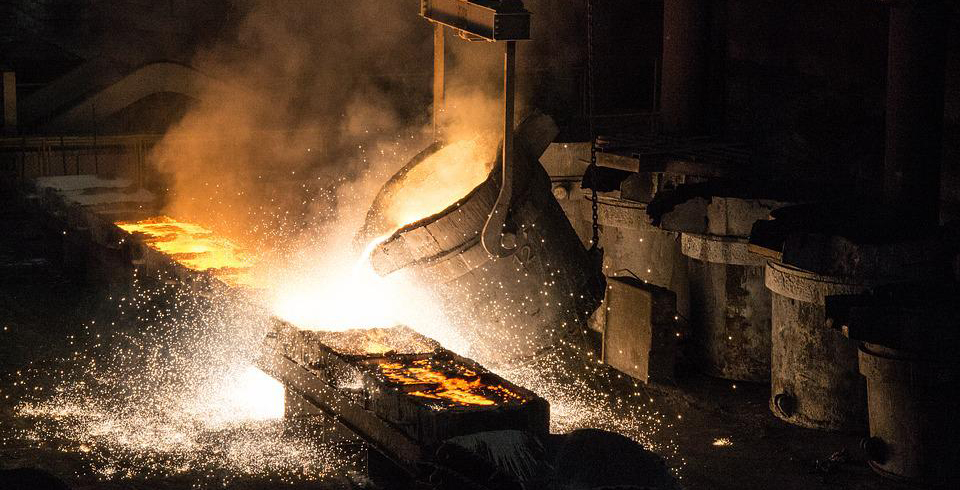Metallurgy
Contents |
[edit] Introduction
Metallurgy is the science, technology and sometimes the art of metal extraction, purification, processing and modification. In more general terms it can also refer to an understanding of the chemical, physical, or atomic properties, structures and principles of metal.
The term is likely to have derived from the modern Latin or Greek words metallurgia or metallourgos, which refer to a metal worker, sometimes known today as a metallurgist. As metallurgy includes the extraction of metals from mineral ores it is closely related to the science of geology in understanding rock formations and the location of appropriate ores which more specifically might be referred to as metal mineral exploration or prospecting.
Historically, metallurgy would have started with native metals, typically rare metals that appear in nature in their pure form such as gold, platinum and copper. Later this developed through an understanding of the extraction of metal from ores, probably starting with copper. The smelting of this and then its mixing with arsenic or tin created bronze during the bronze age.
In many respects bronze was then replaced by the discovery of iron (by early Egyptians) and started what is known as the iron age. Iron continued to be important up to and into the industrial revolution. The possibilities of metal use then expanded with the introduction of steel, which is still one of the core materials used in construction.
Today metallurgy might be described under three different headings or branches:
[edit] Extractive metallurgy
Extractive metallurgy is concerned with the processing of naturally occurring raw materials to extract or convert them into useful metals and alloys. The sub areas of this are referred to as :
[edit] Physical metallurgy
Physical metallurgy is concerned with the identification, control and adjustment of the properties of metals and their alloys. It involves understanding metallic chemical, physical, or atomic structures, properties, and principles.
[edit] Mechanical metallurgy
Mechanical metallurgy is concerned with the working of metal into objects, through rolling, forging, spinning, extrusion, stamping, machining, welding, casting and so on, as well the response of metals to different forces, their tensile, hardness, fatigue, life-span and other properties.
[edit] Related articles on Designing Buildings
Featured articles and news
A case study and a warning to would-be developers
Creating four dwellings... after half a century of doing this job, why, oh why, is it so difficult?
Reform of the fire engineering profession
Fire Engineers Advisory Panel: Authoritative Statement, reactions and next steps.
Restoration and renewal of the Palace of Westminster
A complex project of cultural significance from full decant to EMI, opportunities and a potential a way forward.
Apprenticeships and the responsibility we share
Perspectives from the CIOB President as National Apprentice Week comes to a close.
The first line of defence against rain, wind and snow.
Building Safety recap January, 2026
What we missed at the end of last year, and at the start of this...
National Apprenticeship Week 2026, 9-15 Feb
Shining a light on the positive impacts for businesses, their apprentices and the wider economy alike.
Applications and benefits of acoustic flooring
From commercial to retail.
From solid to sprung and ribbed to raised.
Strengthening industry collaboration in Hong Kong
Hong Kong Institute of Construction and The Chartered Institute of Building sign Memorandum of Understanding.
A detailed description from the experts at Cornish Lime.
IHBC planning for growth with corporate plan development
Grow with the Institute by volunteering and CP25 consultation.
Connecting ambition and action for designers and specifiers.
Electrical skills gap deepens as apprenticeship starts fall despite surging demand says ECA.
Built environment bodies deepen joint action on EDI
B.E.Inclusive initiative agree next phase of joint equity, diversity and inclusion (EDI) action plan.
Recognising culture as key to sustainable economic growth
Creative UK Provocation paper: Culture as Growth Infrastructure.






















